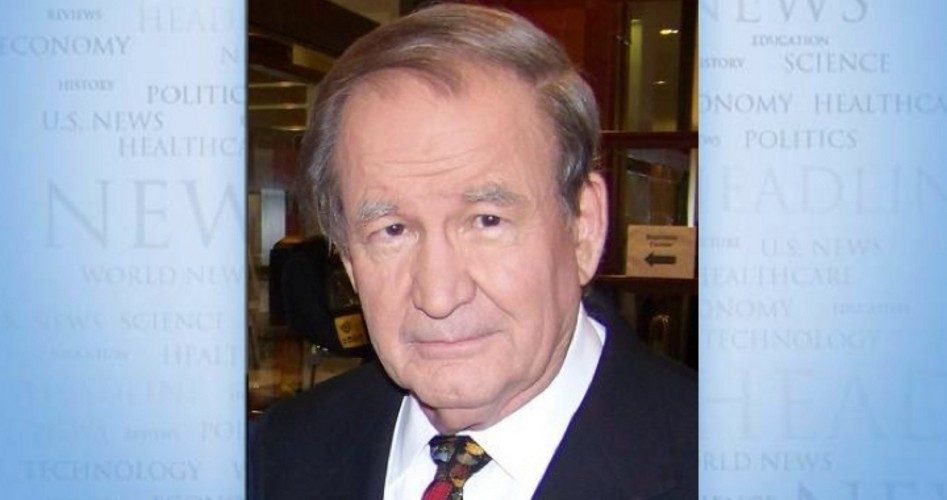
U.S. threats to crush Iran and North Korea may yet work, but as of now neither Tehran nor Pyongyang appears to be intimidated.
Repeated references by NSC adviser John Bolton and Vice President Mike Pence to the “Libya model” for denuclearization of North Korea just helped sink the Singapore summit of President Trump and Kim Jong Un. To North Korea, the Libya model means the overthrow and murder of Libya strongman Col. Gadhafi, after he surrendered his WMD.
Wednesday, North Korean Vice Foreign Minister Choe Son Hui exploded at Pence’s invocation of Libya: “Vice-President Pence has made unbridled and impudent remarks that North Korea might end like Libya … I cannot suppress my surprise at such ignorant and stupid remarks.
“Whether the U.S. will meet us at a meeting room or encounter us at nuclear-to-nuclear showdown is entirely dependent upon the decision and behavior of the United States.”
Yesterday, Trump canceled the Singapore summit.
Earlier this week at the Heritage Foundation, Secretary of State Mike Pompeo laid out our Plan B for Iran in a speech that called to mind Prussian Field Marshal Karl Von Moltke.
Among Pompeo’s demands: Iran must end all support for Hezbollah in Lebanon, the Houthi rebels in Yemen, and Hamas in Gaza, withdraw all forces under Iranian command in Syria, and disarm its Shiite militia in Iraq.
Iran must confess its past lies about a nuclear weapons program, and account publicly for all such activity back into the 20th century.
Iran must halt all enrichment of uranium, swear never to produce plutonium, shut down its heavy water reactor, open up its military bases to inspection to prove it has no secret nuclear program, and stop testing ballistic missiles.
And unless Iran submits, she will be strangled economically.
What Pompeo delivered was an ultimatum: Iran is to abandon all its allies in all Mideast wars, or face ruin and possible war with the USA.
It is hard to recall a secretary of state using the language Pompeo deployed: “We will track down Iranian operatives and their Hezbollah proxies operating around the world and crush them. Iran will never again have carte blanche to dominate the Middle East.”
But how can Iran “dominate” a Mideast that is home to Turkey, Iraq, Saudi Arabia, Israel and Egypt, as well as U.S. forces in Afghanistan, Iraq, the Persian Gulf, the Arabian Sea and Syria?
To Iran’s east is a nuclear-armed Pakistan. To its west is a nuclear-armed U.S. Fifth Fleet and a nuclear-armed Israel. Iran has no nukes, no warships to rival ours and a 1970s air force.
Yet, this U.S.-Iran confrontation, triggered by Trump’s trashing of the nuclear deal and Pompeo’s ultimatum, is likely to end one of three ways:
First, Tehran capitulates, which is unlikely, as President Hassan Rouhani retorted to Pompeo: “Who are you to decide for Iran and the world? We will continue our path with the support of our nation.” Added Ayatollah Khamenei, “Iran’s presence in the region is our strategic depth.”
Second, Iran defies U.S. sanctions and continues to support its allies in Syria, Iraq, Lebanon, Yemen. This would seem likely to lead to collisions and war.
Third, the U.S. could back off its maximalist demands, as Trump backed off Bolton’s demand that Kim Jong Un accept the Libyan model of total and verifiable disarmament before any sanctions are lifted.
Where, then, are we headed?
While our NATO allies are incensed by Trump’s threat to impose secondary sanctions if they do not re-impose sanctions on Tehran, the Europeans are likely to cave in to America’s demands. For Europe to choose Iran over a U.S. that has protected Europe since the Cold War began and is an indispensable market for Europe’s goods would be madness.
Vladimir Putin appears to want no part of an Iran-Israel or U.S.-Iran war and has told Bashar Assad that Russia will not be selling Damascus his S-300 air defense system. Putin has secured his bases in Syria and wants to keep them.
As for the Chinese, she will take advantage of the West’s ostracism of Iran by drawing Iran closer to her own orbit.
Is there a compromise to be had?
Perhaps, for some of Pompeo’s demands accord with the interests of Iran, which cannot want a war with the United States, or with Israel, which would likely lead to war with the United States.
Iran could agree to release Western prisoners, move Shiite militia in Syria away from the Golan Heights, accept verifiable restrictions on tests of longer-range missiles and establish deconfliction rules for U.S. and Iranian warships in the Persian Gulf.
Reward: aid from the West and renewed diplomatic relations with the United States.
Surely, a partial, verifiable nuclear disarmament of North Korea is preferable to war on the peninsula. And, surely, a new nuclear deal with Iran with restrictions on missiles is preferable to war in the Gulf.
Again, we cannot make the perfect the enemy of the good.
Photo of Patrick J. Buchanan: By Bbsrock – Own work, CC BY-SA 3.0
Patrick J. Buchanan is the author of a new book, Nixon’s White House Wars: The Battles That Made and Broke a President and Divided America Forever. To find out more about Patrick Buchanan and read features by other Creators writers and cartoonists, visit the Creators website at www.creators.com.
COPYRIGHT 2018 CREATORS.COM



